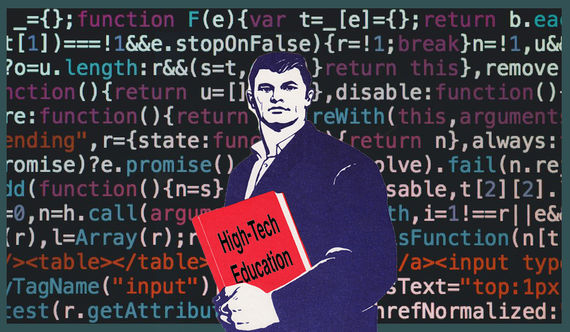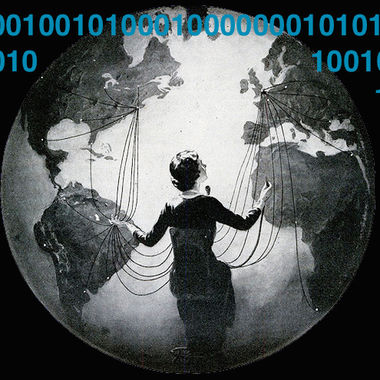“Education is a human right with immense power to transform. On its foundation rest the cornerstones of freedom, democracy and sustainable human development.” – Kofi Annan
A very true statement, though while reading it I caught myself thinking that in Armenia we still need to transform the whole education system, which has the immense power to transform industries and the economy and impact the lives of Armenia’s citizens.
Education System Inhibits the Growth of Industry

Recently, I read an article stating that Alexis Ohanian, co-founder of Reddit, is ready to help bring high-tech companies to Armenia. I became very excited about this news. My respect and kudos to Alexis for showing readiness to support Armenia. Other than that, there will be dozens if not hundreds of such opportunities in the near future., Moreover, my inner belief is that there will be plenty of opportunities due to two main factors
As the demand for software engineers is growing rapidly, there will be no shortage of high-tech companies seeking potential opportunities to enlarge their engineering operations outside their countries.
And the Armenian diaspora is ready to contribute to high-tech sector growth. There are great examples like IntelinAir, Vineti etc.
But what will a CEO or another executive of a high-tech company invited to Armenia by Alexis or another Armenian entrepreneur look for? The answer is very straightforward - the supply side – the pool of experienced tech professionals, who are capable of deep technical skills, adaptive learning and soft skills. The supply of tech professionals is not growing as fast in the world as the demand, thus we should establish for us a fact that human capital (number of software engineers, hardware engineers, designers, data scientists, network engineers, etc.) is one of the critical things any large high-tech company will pay attention to when considering establishing engineering operations in Armenia. There could still be overseas companies willing to establish engineering offices with 5-10 team members in Armenia without deep feasibility analysis regarding human capital, but what are the chances that companies like Synopsis or VMware will establish engineering offices in Armenia next year (companies which want to employ not 10 but 100s of experienced professionals). Well, let me rephrase the question and split it in two parts –
[Everybody knows it is not easy, but...] What are the challenges that a high-tech company or an Armenian startup will face, when it will be building an engineering team in Armenia.
Why should these companies not establish their engineering offices in Russia or Ukraine which have 450 thousand and 130 thousand engineering graduates annually (Armenia had less than 1000 engineering graduates in 2017).
The ultimate answer to these questions is - The biggest challenge is the lack of skilled human capital.
High-Tech Education Now
During Soviet times, formal education used to be a guarantee for a job, but this is no longer the case. The high-tech field is not an exception. Fresh university graduates of computer science and adjacent fields in Armenia experience difficulties when they want to transition from being a fresh graduate to an employee (e.g. junior developer): the majority of fresh graduates do not have the working skills and employers do not want them in their offices.
Then comes the “ugly part” for the high-tech industry: fresh graduates do not constitute the main pool of the workforce upon which the high-tech depends for chasing after the opportunities such as Alexis is going to bestow and grow. Many representatives of the private sector view the education system as one of the main obstacles for high-tech industry growth. The roots of this are very deep, but let me quickly list some of the problems in high-tech education:
No teaching approach to cultivate critical and creative thinking. Main teaching model is lecture-based passive learning, where the best “reproducers” are the best students.
Absence of project-based activities (even small and not complex) in universities. Students do not work on real projects like building small but real software applications. As a result, they have little idea “what the hell a real IT product is,” “what it means to work in a team,” “how to use communication tools,” etc.
There is strict separation between theory and practice tangled by a massive disconnect between higher education and the labor market. And usually you can hear both academia and industry representatives revealing the reasons why they can’t work with each other on a larger scale. [It is worth mentioning that there are very few but really impressive projects which bridge the gap between academia and industry].
“Old school” lecturers for whom adaptive learning, project based learning, new technological trends and many other things just do not fit in their everyday teaching agenda [which is preparing students to be employable in the fast changing market].
How to Transform High-Tech Education
30,000 Software Engineers in Armenia by 2025
By Artashes Vardanyan
There are more than 450 IT companies, which are employing more than 10 thousand software developers and engineers. Around two thirds of Armenian IT output is exported to over 20 countries. So what is standing between Armenia and its dream of building a "Silicon Mountain"?
Armenia inherited a “from the classroom to employment” education system after independence which is reflected in Armenian society’s attitude towards education. Education for students, lecturers and even parents is associated with “getting a diploma,” a piece of a certificate that one hopes to benefit from in the future. But we should not stick to what we inherited.
I am a big believer that [skilled and knowledgeable] human capital can bring significant positive changes in the high-tech sector and also in the socio-economic life of Armenia, but to create highly skilled human capital, Armenia should transform its education system.
So how to transform high-tech education? And who should take the leadership role in this transformation? The answer to the second question is very clear – government, but the private sector [being the end stakeholder] should also take significant ownership in this transformation. I do not think that there is an easy formula through which high-tech education can be transformed and it is not a task that can be accomplished in a year or two. But considering the untapped opportunities for Armenian high-tech, the government should take the first steps [not next year, not after elections, but] now and it should explicitly take a strategic rather than a tactical approach. And by the way, fighting corruption elements in the education system is very, very important but just by fighting corruption education is not going to be transformed – fighting against corruption is definitely necessary but at the same time not sufficient.
If I’d say only one thing that the government should do towards transforming high-tech education it would be the following: making education the number one item on the agenda of the government and have an “education-first” approach when designing national and economic plans, and even taxation laws. The government should take the following actions to transform high-tech education:
Introduce computer science as part of school curricula. The UK, Sweden, Denmark, Estonia, Ireland, Portugal have already integrated coding in their school curriculum. This will enable future students acquire knowledge of basic programming logic, structure and design, which means in university the students [who choose computer science as a profession] can focus on working skills rather than basic skills.
Government should ensure that industry is a partner rather than a consumer of the “university’s product.” This can make the private sector of high-tech industry be one step closer to the process of constructing the pool of high-tech professionals. Industry can depict the market needs, contribute to the design of curriculum, and also take ownership of some part of the teaching process. As a result it is a win-win cooperation, but in my opinion it can’t happen on a large scale unless the government takes the leadership role.
Focus on human resources - the next generation of teachers and university lecturers. The changes associated with the implementation new teaching models and approaches are substantial. The rapidly changing job market will touch on many different functions that today’s teachers and lecturers are conducting and as a result today’s and tomorrow’s teachers will need to uncover new methods of technology educating and reshape their teaching skills. This requires a substantial investment to proactively manage changes and re-skill educators.
Support change champions. Overall, high-tech education will spend years rolling out new models and approaches across all the education system. To succeed in the long term and not paralyze the whole system by getting many stakeholders in, the government can support some projects and initiatives like Ararat Baccalaureate, TUMO, ISTC, MIC Armenia and others as change champions that can build excitement and rally the system with an inspiring narrative. Such deployments can also be used as sharing of learning on a larger scale.
Mindset of Armenian Startups: The Dos and the Don’ts
By Artashes Vardanyan
The emerging startup ecosystem in Armenia is very vibrant but faces many challenges. Tech expert and startup enthusiast, Artashes Vardanyan takes a critical look at the existing beliefs in the startup sector that need to be readjusted to ensure future success.
The world today is changing rapidly; the high-tech world is changing super-fast. Education is one of the many fields that is adapting and evolving to keep up and stay relevant. But in the case of high-tech education, it needs to remain a step ahead, tasked with preparing today’s students (even school kids) for the challenges of tomorrow. Armenia’s high-tech industry is booming and it has a unique opportunity to tilt the world’s attention to Armenia. But if we do not take steps towards the transformation of high-tech education, we might deprive the high-tech industry of benefiting from all the opportunities.





